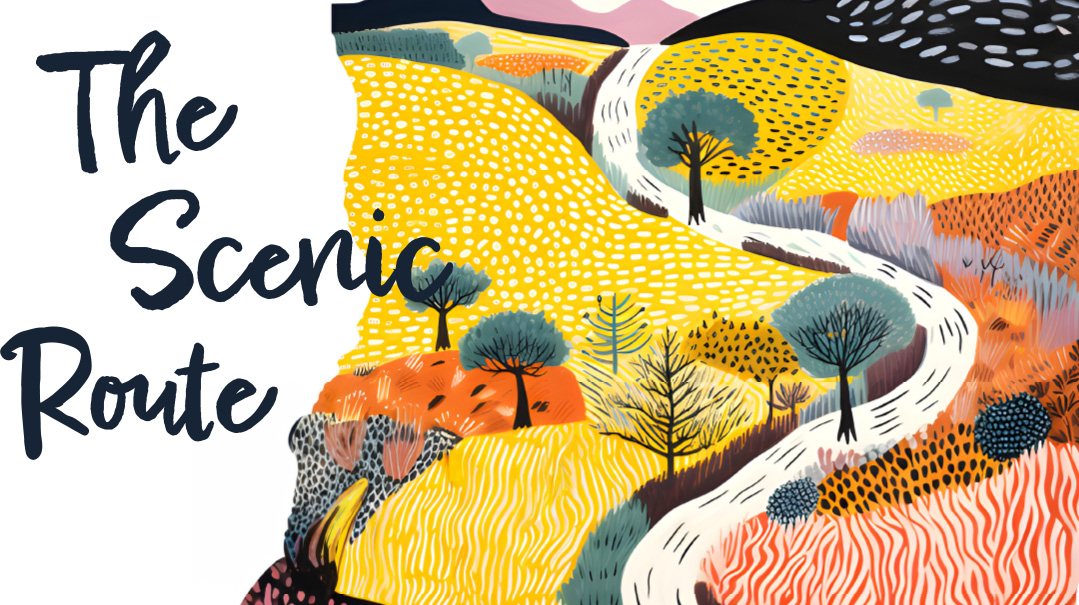Gradual Unfurl
| June 15, 2021“I don’t understand,” she said. “You want me not to be myself?”
Shani Leiman with Zivia Reischer
"I can’t do this anymore.”
Those were the first words Racheli said to me. Before she said “hi” or “how are you” or even “thanks for making the time to speak with me.”
“What’s going on?”
“What’s going on is that every time I date a boy, I go out for five, six, seven dates, and then it falls apart. Either I say no or he says no, for perfectly valid reasons.”
“That sounds very…”
“Weird,” Racheli interrupted me. “Because I have plenty of single friends, and I don’t see this happening to any of them. They go out with guys once, twice, three times tops, and then it’s over. If they go out six times, it’s because they eventually get engaged.
“One of my friends even claims that a third date is the ‘make it or break it’ — either you say no then, or you get engaged. But I go out with every boy three times! At least!” She took a deep breath. “And then I’m a basket case after every breakup. It takes me two weeks to get over it. And then it happens again.”
“Racheli, can you tell me a little about yourself?”
As we made small talk, I noted a few things about Racheli’s personality. She seemed on the reserved side, but as she grew more comfortable, her confidence increased, and she shared her thoughts and ideas freely, connected easily, and was fun to talk to. It wasn’t hard to imagine every boy saying yes to that warmth and frankness.
Maybe that was the problem.
“Tell me about your dating style,” I said. “Do you find dating fun? Do you dread it?”
“Oh, I guess it’s okay. Who likes dating, right?” She laughed. “But I don’t dread it, either. I can carry the conversation, talk about interesting things…”
“Can you give me examples?”
“Um, okay.” She thought for a minute. “Okay, so I went out with this guy last night — Meir. It was our second date. That’s why I’m calling you now,” she added, “so I don’t have to date Meir for four weeks and then cry for two weeks. Anyway, on our first date, we talked about the weather, of course.” She laughed again. “He’s from L.A., so he said he’s not used to the cold winters we have here.
“We ended up discussing how the mild weather in L.A. affects people’s personalities. I told him that I think weather affects me too because I’m a totally different person in the springtime. In the winter I really get down, I sometimes don’t want to do anything, and I can be so negative, but come springtime, and I just want to get up and dance. Like the budding flowers — I feel like bursting out of the winter!”
The more we explored Racheli’s dating style, the more I realized that her greatest asset was becoming a liability. She bonded easily with people, and every time she met a boy, she instinctively knew how to connect. She was a people-pleaser, tended to see the good in others, and wore her heart on her sleeve. Of course every boy she dated was drawn to her.
“I don’t understand,” she said, when I pointed this out. “You want me not to be myself?”
“Since you mentioned flowers, let me give you this analogy. Have you ever watched a flower bloom? It’s a delicate process. Initially the flower is firmly closed. Ever so slowly, it opens a bit and then a bit more, gradually revealing all its glory. Then we can view the whole flower, even the center — the heart of the blossom. Getting to that inner place is a process that requires time.
“Relationships are the same. We don’t want to be totally forthcoming and personal right away. You have to open up gradually, build a relationship bit by bit. Getting to know someone is a slow process. As you each get to know each other better, you open up more and more — sharing more of your inner world. You need to go slow.”
Racheli tried to process this. “But why schlep it out? What’s wrong with going fast?”
“Well, according to what you’re telling me, it is going wrong. What’s happening is that you get off to a running start, sharing with this new person as if he’s your best friend, telling him earnestly how you feel depressed in the winter and want to dance in the spring. Then you hit date number five or six or whatever, and one of you realizes that you’re not, in fact, right for each other. It’s almost as if you’re connecting so personally, that you’re distracted from the purpose of dating.”
“You want me to be stiff and reserved?”
“No, I want you to be more gradual in how you open up and how much you share. If you feel deeply connected to someone after just one date, that’s not actually a good thing. That’s a sign of infatuation, and it clouds your ability to make a thoughtful decision. The normal feeling after a good first or second date is ‘I enjoyed it,’ or ‘It was fine,’ or ‘I can handle meeting him again.’ Head-over-heels excitement wouldn’t be typical or appropriate.”
Racheli and I talked about topics appropriate for each stage of dating. The main focus of a first and second date is to gain a general idea of who this person is. There aren’t any definitive judgments, no harsh analysis after a first date or a second date. Discussion should be casual, light, friendly, and warm. A no after a second date means the light conversation wasn’t working at all, or certain mannerisms or character traits really didn’t sit well with you.
“But people always talk about being open and making yourself vulnerable,” Racheli argued.
“True,” I acknowledged. “Sharing your inner world is an important piece of building a relationship. It’s a piece that many people struggle with. But you don’t. It comes easily to you — so easily that you do too much too fast. You need to work on restraint. Control how much you reveal about yourself. Don’t give everything away in the beginning.”
“I’m going out with Meir again tomorrow,” Racheli said.
“Wonderful. It’s a third date, right? So you’re dating a ‘friend.’ You enjoy each other’s company. Now you can try and see if you share the same hashkafos.”
I continued to guide Racheli as she dated Meir. Before their fifth date, we agreed that it was an appropriate stage for Racheli to share a bit about her family’s move to England for a year when she was ten — the upheaval she had experienced, the adjustment once they got there, and then the difficulties when they moved back only a year later.
“I used to talk about this on the first or second date,” Racheli admitted. “It makes great conversation.”
But after the fifth date she reported that it had been “different.”
“I was telling him because I wanted him to understand me and to see how he responds to this kind of thing,” she said. “Not just as entertainment to make it a good date.” She paused, searching for the words. “I never realized how ‘cheap’ it was to share too early.”
Ultimately, Racheli didn’t marry Meir. Like her previous dating experiences, this one ended after the fifth date. But there was a notable difference.
“I think I’m not nearly as devastated,” she reported. “I was more grounded the entire time, more aware of what was really happening. I wasn’t caught by surprise when it ended, and while I was in it, I wasn’t overly invested either. So that’s an improvement.”
I still hear from Racheli from time to time, particularly when she’s dating someone new and wants my input or advice to keep her on track. Together we review the topics and attitudes that are appropriate for each stage of a relationship.
When Racheli said no to a boy after three dates, “it’s a victory,” she said wryly. “I didn’t waste his time and emotions, or mine.
“And when I do meet the right one,” she added with a smile in her voice, “I know it’s going to be different — and special.”
Shani Leiman is a teacher, shadchan, and dating coach. She lives in Silver Spring, Maryland.
(Originally featured in Family First, Issue 747)
Oops! We could not locate your form.



